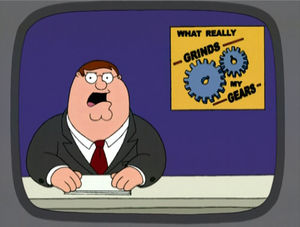Latest posts by Maureen Williams (see all)
When grading assessments as a demonstrator, I try really hard to give helpful, constructive feedback. It’s important for everyone to learn from their mistakes and develop both as scientific thinkers and as writers. However, there are a few mistakes that happen very often and really grind my gears. If you want to impress your grader and improve your marks, avoid the mistakes below like the plague.
- Species notation. A species should be written this way: Genus species and abbreviated species. The italics are crucial.
- Please, do not misuse commas. A great brief on this can be found here. As a side note, all of Mignon Fogarty’s tips can be helpful and her podcast is stellar.
- Spell check. Your word processing software should run this automatically. In case it doesn’t, please run your assignment through one. There are even free ones on the internet.
- Please write in full, complete sentences in the English language. Make sure your sentences have both a subject and a verb at minimum. Avoid fragments: http://www.quickanddirtytips.com/education/grammar/sentence-fragments
- Parenthetical phrases. It’s (sorta) annoying that this colloquial writing technique infiltrates your writing. Either say it, or don’t.
- Vague statements. Avoid phrases like “understanding is good” or “pollution is bad”. Be descriptive. If it seems like filler, it probably is filler. You can write meaningful things, so please do.
- Don’t go too far the other way. Saying that “Nothing of value has been done without X” is pretty hyperbolic and will definitely get my ire up.
- Lists are generally not part of scientific writing and should be avoided. Don’t tell me everything you needed in a list. Don’t tell me what you did in a list. Write me a beautiful, descriptive, informative paragraph.
- I love abbreviations as much as any millennial raised on internet speak, but it’s really important to let people know what the abbreviations you’re using mean. Write it out, then give the abbreviation immediately. Oh my goodness, OMG, is a great example here. Otherwise we’re in this situation:
- The dreaded /. Please don’t do/try this at home. It’s so frustrating! Write out a conjunction. You can reference this for clarification:
- It’s perfectly ok to start a sentence with the word “this”, but you must be incredibly crystal clear about what you’re referencing. There is ALWAYS another word you could use that would add clarity to your writing, and it’s almost always better to just use the word you mean.
That’s all. Avoid these issues and your grader might work through your assignments with a smile. Always remember to write CLEARLY and CONCISELY. Now, you’ve just got to nail down the actual science…
Author: Maureen Williams @MoDubs11

